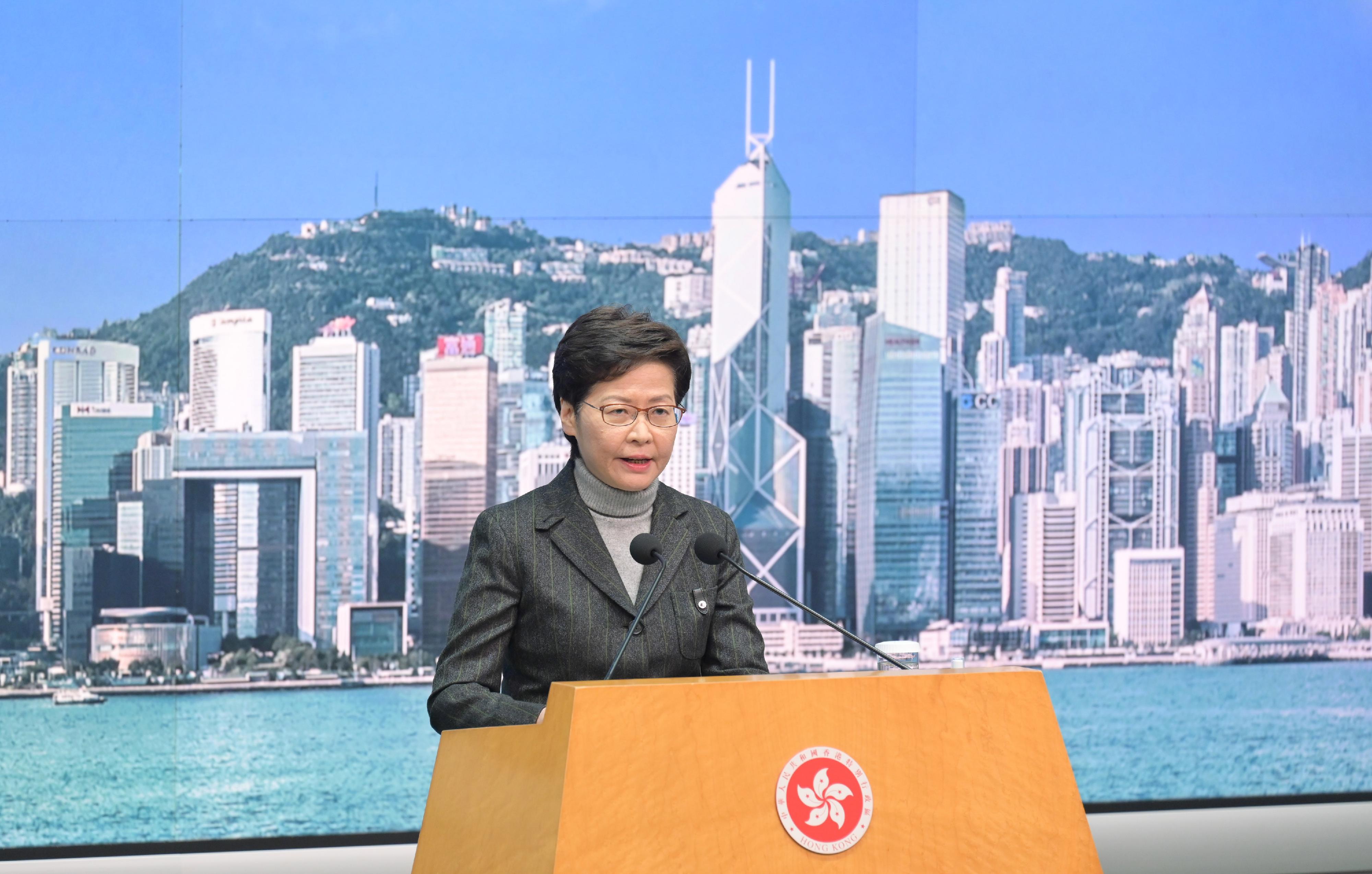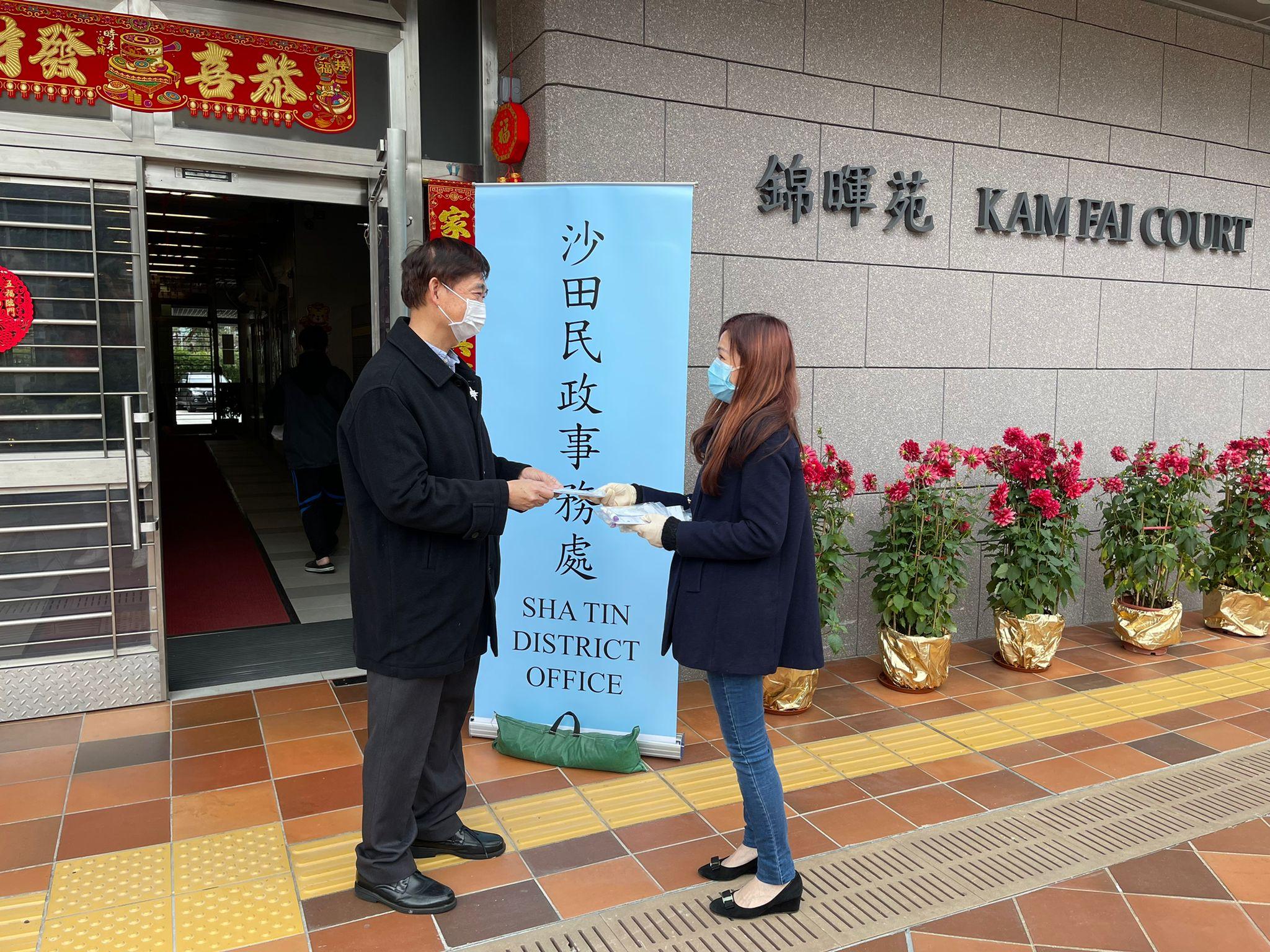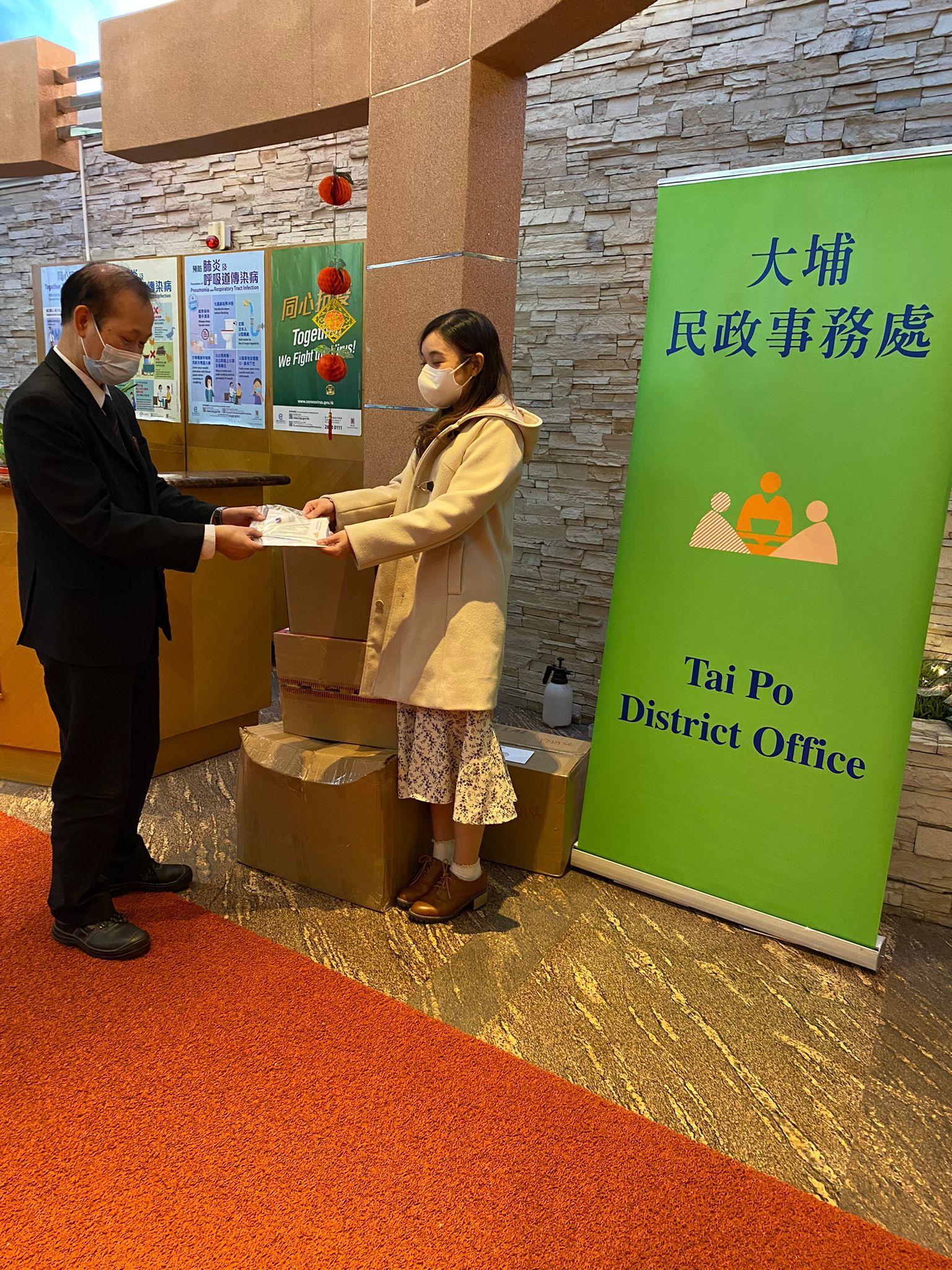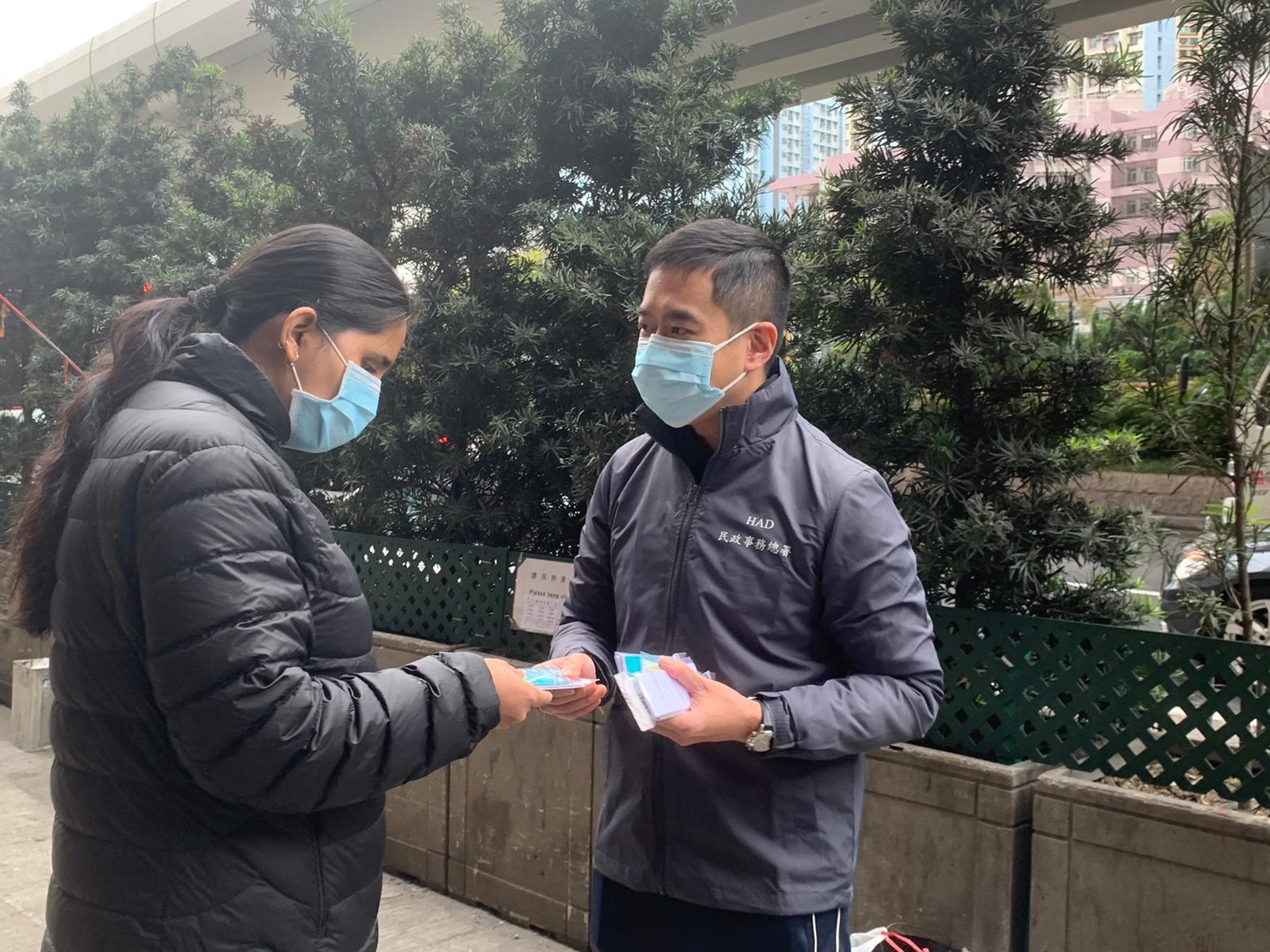Following is the transcript of remarks by the Chief Executive, Mrs Carrie Lam, at a media session this afternoon (January 31) on the investigation in relation to officials attending a banquet in the evening on January 3:
Reporter: Hello, Mrs Lam. Three questions. The first one, did you accept Mr Fung's justification that he forgot whether he was masked on after he drank alcohol? Will the Government follow up on the matter whether he breached the social distancing rules? Second question, to follow up on the case of the Immigration chief, why wasn't him required to step down considering that it is the second time he breached the social distancing rules? And the third question, could you please explain on behalf of certain involved officials on why their attendance was related to work, especially the chief of the Police, the ICAC and the Immigration? Thank you.
Chief Executive: Thank you for the three questions. In your first two questions, you related to social distancing rules. The so-called social distancing rules are prescribed under the Prevention and Control of Disease Ordinance, that is Cap. 599, specifically is Cap. 599F as far as this restaurant's rules are concerned. The investigation that I have ordered the Director of the Chief Executive's Office and the Secretary for the Civil Service to undertake is a disciplinary investigation. It will not override the legal or statutory investigation which is to be undertaken by the regulatory authority; in this case, it is the Food and Environmental Hygiene Department. And the department is still doing the investigation, not only for the restaurant, not only for the 15 officials but also for some 200 guests who have attended that party. This is not for me to say whether a particular person has breached social distancing rules. But in my investigation, through the detailed information gathering by the two respective colleagues, that I have now considered all the evidence and come to the view who have violated the disciplinary code and have to be subject to certain actions, there are altogether three officials. I think the one that you have mentioned is subject to a verbal warning. A verbal warning is a form of sanction both under the Civil Service Regulations and the Code for Officials Under the Political Appointment System. In the provision in the code under the heading of "Sanctions", "Warning" is one of the sanctions. Mr Fung is being put under one of the sanctions. In a way, he is being punished because of staying too long – for over four hours up till midnight – and for probably breaching the rule of not putting on a mask and so on.
For the Director of Immigration, as far as this particular incident is concerned, the investigation reveals that he arrived very late at about 9.30pm and stayed outside of the restaurant for 15 minutes and then he left. Generally speaking, everyone was under the impression that if you have not entered the premises – because Cap. 599F applies to scheduled premises – if you have not entered the particular premises then you are not required to use the "LeaveHomeSafe". This is the investigation outcome as far as we are concerned. But, of course, the regulatory authority, that is the Food and Environmental Hygiene Department, is continuing their own investigation
I have taken the view, and I think it is a reasonable view, that there is no strong justification to impose a sanction on the Director of Immigration, let alone a sanction to step down; and he is a Principal Official appointed by the Central People's Government, so I have reported the situations of the Principal Officials to the Central People's Government, and my conclusion has the endorsement of the Central People's Government.
The third is about relation to work. We have looked at the reasons and justifications provided by each of the 15 officials and I am satisfied that each of them has a linkage to Mr Hung. In my statement just now, I have described the various areas of work that colleagues will find themselves having a relationship with Mr Hung. One is about information technology. For those who know Mr Hung, he is a, sort of, community person or leader in the IT sector. And the second area is about Hong Kong and Mainland relationship because Mr Hung represents Qianhai, Shenzhen in terms of liaison with Hong Kong. As a result of that we have so many things working with Qianhai, Shenzhen on the tax side, the corruption prevention side, the legal front and so on. And I believe the Commissioner of ICAC was right now in some discussions with Qianhai about how to help on corruption prevention.
Mr Hung also has a long period of experience and work in youth development, so colleagues involved in youth development will have a close connection and knowledge about his work. Finally, about the Commissioner of Police, actually I didn't realise that, but I now realise that, Mr Hung is a long-term non-official member of the Road Safety Council, and the Road Safety Council is an institution under the Hong Kong Police Force. In that context, they are also working partners, so it is also understandable that they receive an invitation and out of a matter of courtesy they have attended the meeting. These are common sense. I am not trying to defend them, but I would say that this is understandable for officials who have some official dealings with a private individual and when they receive an invitation from this private individual, as a matter of courtesy or as an indication of recognition of the work that this individual has done for Government departments, so they accepted the invitation and attended the event. Thank you.
Reporter: Good afternoon. You said it's acceptable for officials to attend the party because they have a work relationship with the party organiser. So does this mean that in the future, officials can attend high-risk events if it's for work? And also, some senior DAB (The Democratic Alliance for the Betterment and Progress of Hong Kong) members, including ExCo (Executive Council) member Ip Kwok-him, have said they felt Tsui could have kept his job, so what do you think about such views? Thank you.
Chief Executive: I hope we would not react in a too far-fetched manner. When I said that in this particular incident, it is acceptable for most of the officials to accept the invitation to attend this birthday party reception, one has to take into account the relationship that that particular official has with the host. If they have a working relationship, they know each other and they receive an invitation to celebrate something with this person, then as a matter of courtesy, or even to use that occasion to meet up with other people belonging to the same sector, it is understandable. This is how public officials sometimes could do their job. You try – to reach out, to network, to understand, to receive feedback. I hope you were not suggesting that public officials should not have any private event or function, that was going too far to the extreme. That is my intention of what I have said.
But of course, if that event is a high-risk event, then nobody should go, not only my public officials. Nobody should go to any high-risk event, especially in an epidemic situation. But again, as I have explained, January 3 was before the Government announced another major wave and package of tightening up the social distancing measures. So one could excuse them for not knowing the situation and still attending a function on the full understanding that the rules would be fully complied with. I have received and looked at the invitation sent through the WhatsApp message. It did tell the guests that this event followed exactly the rules that the restaurant had to comply with, and so on and so on. With that sort of situation, I said it is understandable and acceptable for the officials to accept the invitation and to attend the event, as long as they fulfilled all the requirements, and better still, they did not stay too long, and they did not mingle too much with the guests, and left at the early stage of the party before it became very crowded.
I cannot comment on what other people said about how we deal with this case and the resignation of Casper Tsui. I can only end by saying that the political accountability system was introduced with an intent in mind, and that is, senior officials should be held responsible and accountable for their decisions, and this is also intended to meet the public expectations that senior officials should uphold high standards in their conduct, in their integrity, in their daily dealings with people. The fact that Caspar has decided to resign in order to shoulder this personal responsibility or this political responsibility – I think that's something that we should affirm, that this is the right act to do. And by the way, I'm sure you are aware that Caspar has joined the Government for over 10 years. He joined in 2008 as a very young official, and climbed through the ranks from political assistant to deputy secretary, and was chosen by me and nominated by me, and appointed by the Central People's Government, as a Principal Official in his early 40s. And I worked with him in the last two years or so. I think he was, by and large, a very responsible and diligent colleague, but it was a very unfortunate event that he had made the wrong judgement, lack of political sensitivity, especially in holding his position of the Secretary for Home Affairs. But I do wish him luck and I hope that he will continue to serve the community. He is still young. I'm sure that he has learned, although learning a very hard way over this incident, but I'm sure that he will try his best to continue to serve the people of Hong Kong in various capacities.
(Please also refer to the Chinese portion of the transcript.)




